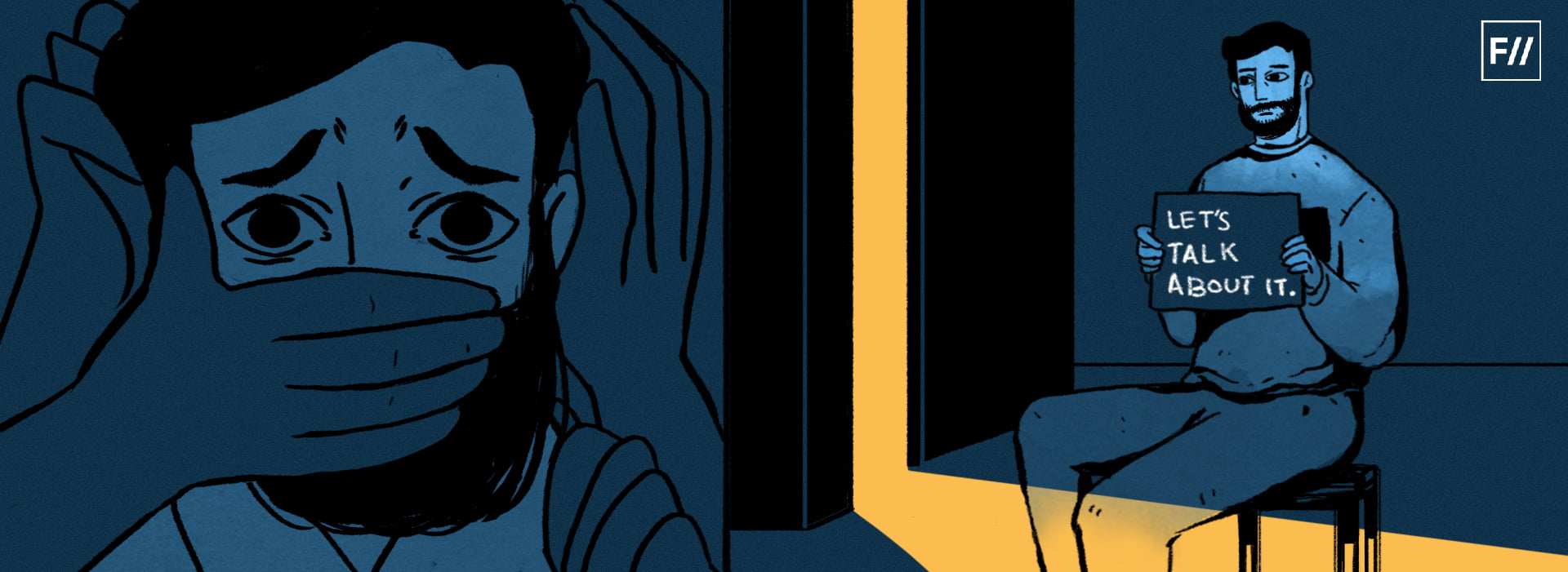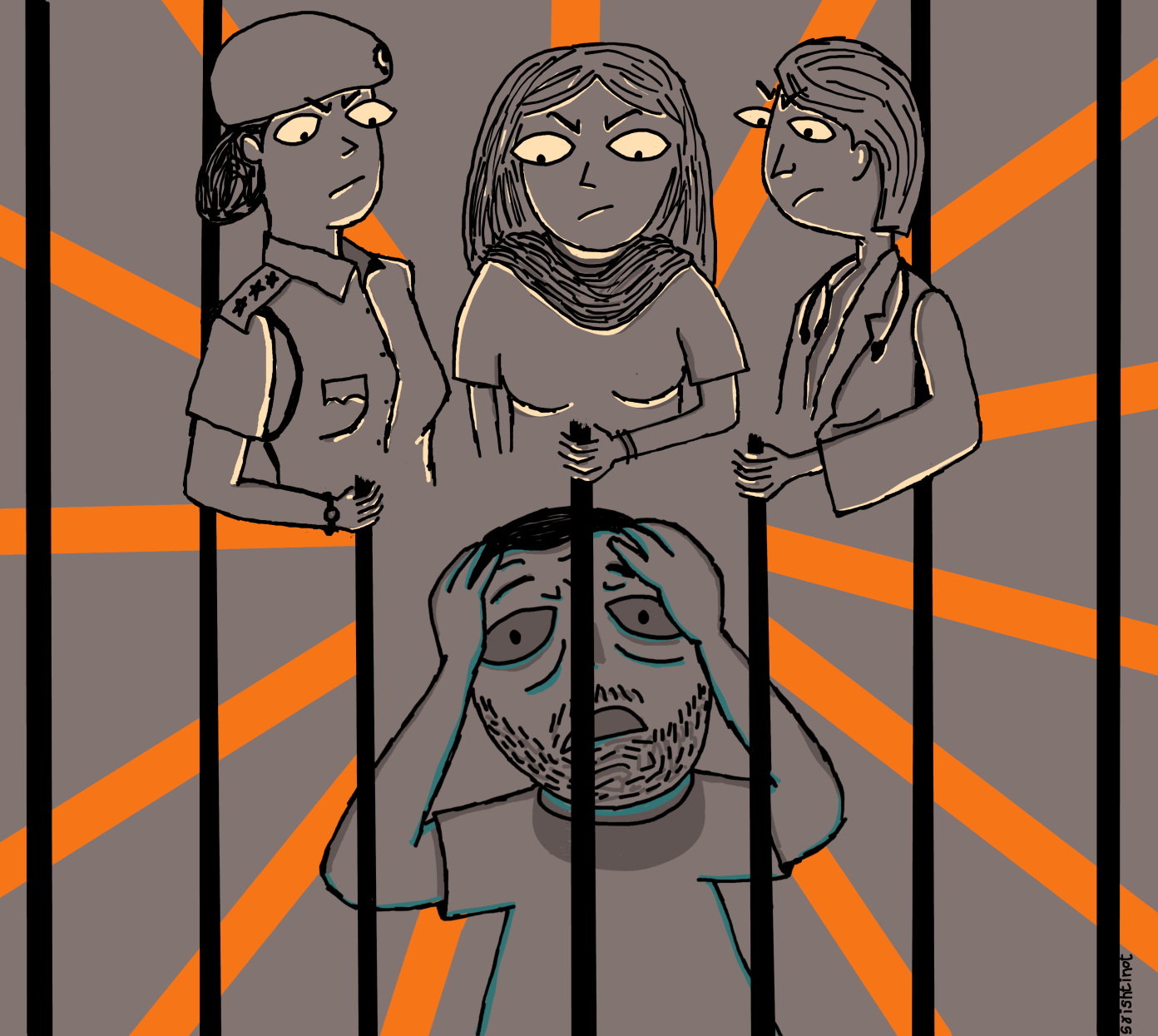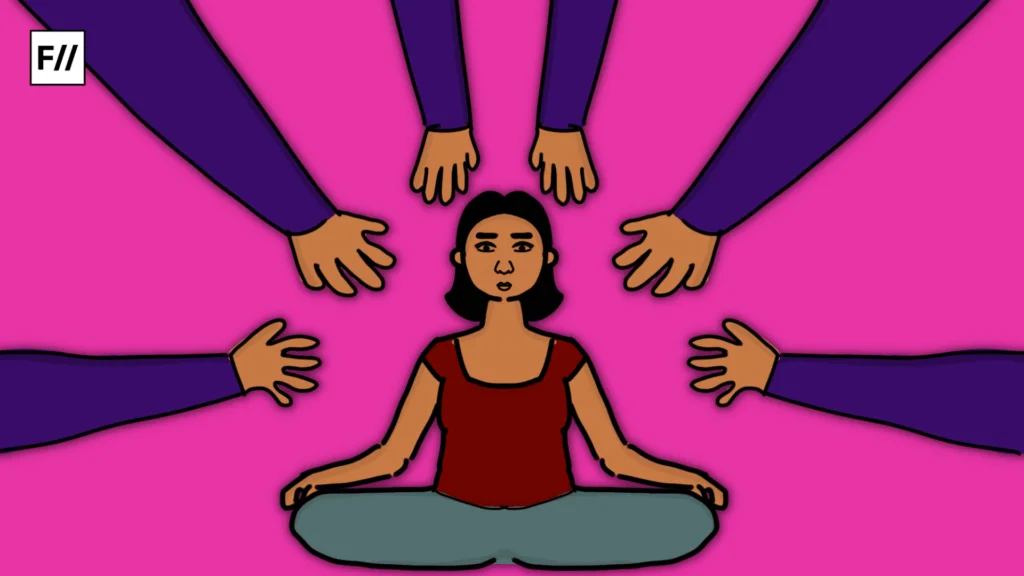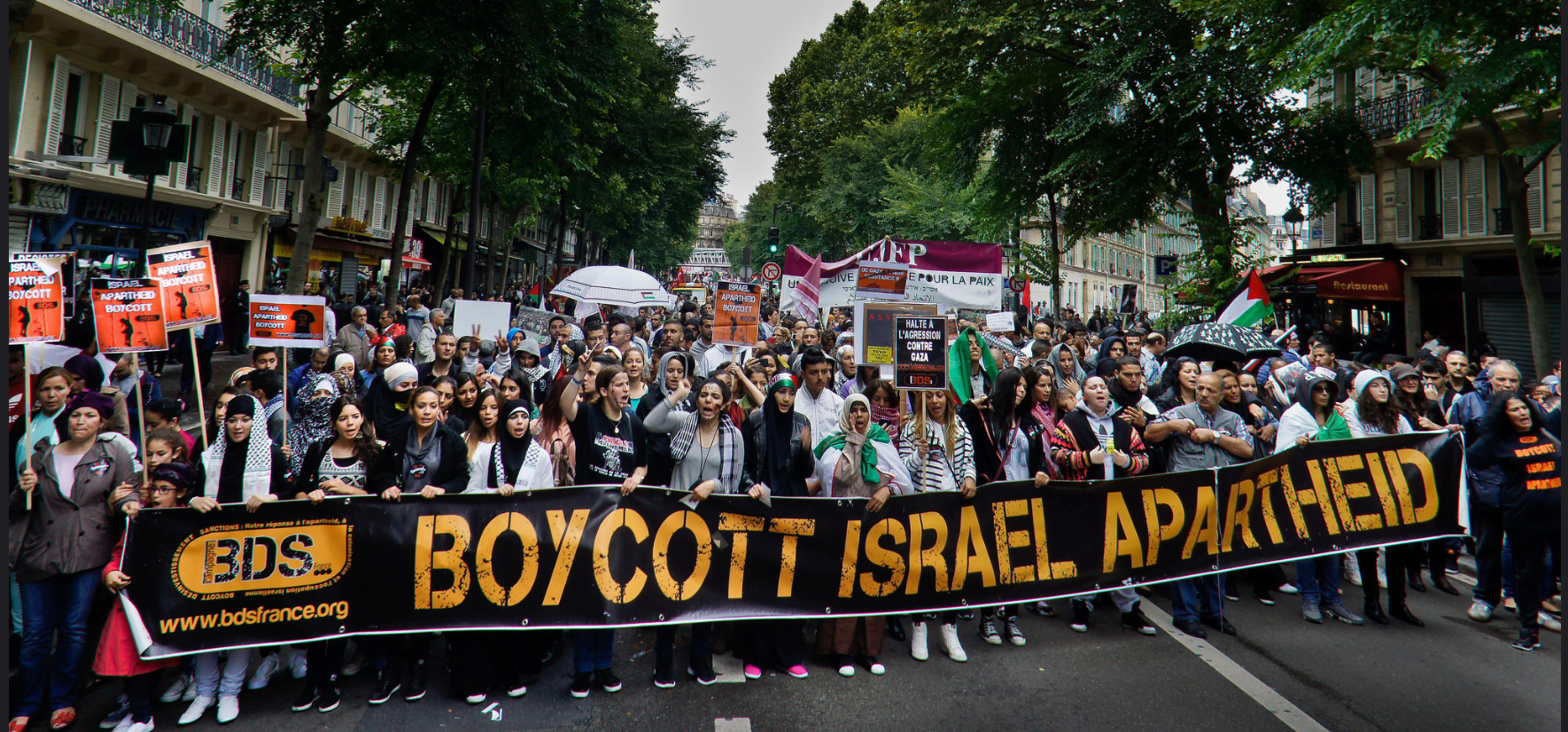Editor’s Note: This month, that is September 2020, FII’s #MoodOfTheMonth is Boys, Men and Masculinities, where we invite various articles to highlight the different experiences of masculinity that manifest themselves in our everyday lives and have either challenged, subverted or even perpetuated traditional forms of ‘manliness’. If you’d like to share your article, email us at pragya@feminisminindia.com.
Trigger Warning: Rape, Sexual Assault, Police Brutality
There was a moment in the theatre while watching David Dhawan’s Badrinath Ki Dulhania (2017) where everyone erupted into hearty chuckles. The scene playing: Varun Dhawan’s character is approached, and almost assaulted by a group of men on the streets of Singapore. The entire sequence however, is played off as a ‘joke’. As Badri looks flustered and embarrassed, clutching his friend’s dupatta close to his well-built masculine body, the audience is meant to giggle. This scene, in a movie that otherwise aims to speak against a patriarchal evil like dowry, and calls for equality between the sexes, is supposed to incite laughter – but why?
Sexual assault of men as a ‘joke’ in media is so normalised and pervasive that it’s hard to notice unless you’re looking for it. From casual punchlines about unwanted touching or kissing to gratuitous one-liners about anal rape, such jokes are almost everywhere. But are they supposed to be ‘funny’?
A lot of it has to do with the problematic idea that it’s almost ridiculous for a man to be raped. These ‘jokes’ essentially demean or humiliate men for being or potentially being the victim of a sexual assault. The premise is simple – a man who is weak enough to let himself be assaulted is deserving of ridicule. Deeply embedded in the culture of toxic masculinity is the idea that, ‘real men’ cannot be raped. Real men should be strong enough to fight off rape when the perpetrator is a man, and sex-hungry enough to enjoy it when the perpetrator is a woman.
This idea is neither born on movie sets nor does it stay contained within them. Sexual violence is a form of violence, but unlike other types, it is seen as deeply linked to a person’s dignity. In the case of men, it is linked to their masculinity. Being a victim of sexual violence, then, is supposed to strip a man of his masculinity. Ideas behind the strength of men are at play here – why didn’t he fight off his perpetrator? These notions have very real ramifications and actively contribute to the way male survivors are treated when they try to speak up about their experiences.
Sexual assault of men as a ‘joke’ in media is so normalised and pervasive that it’s hard to notice unless you’re looking for it. From casual punchlines about unwanted touching or kissing to gratuitous one-liners about anal rape, such jokes are almost everywhere.
When Terry Crews testified about his experience of sexual assault in front of Congress in support of the Survivors’ Bill of Rights, he said: “As I shared my story, I was told over and over again that this was not abuse. That this was just a joke.” Crews’ story was met with backlash from many heterosexual men, who could not seem to digest the idea that a man as physically bulked up as Crews could be in such a situation. The jokes kept coming.
Emasculation and Homophobia
Punchlines about men being sexually assaulted usually revolve around the idea of a man being made subordinate to another man and therefore, forced into a role that is stereotypically feminine. This is supposed to be funny, because under patriarchy, being treated like a ‘woman’ is the most humiliating thing that can happen to a man. It emasculates him. Emasculation, of course, goes hand in hand with homophobia.
For a heterosexual man, being forced to submit to another man, would not only emasculate him but he might be perceived as homosexual. Because our homophobic culture assumes that gay men are necessarily effeminate, they occupy a place that’s lesser than. The straight man’s extreme anxiety around his sexuality means that being thought of as gay is very humiliating.
We already live in a rape culture. What all of these jokes do is trivialise rape even further, while simultaneously propagating toxic masculinity, homo and transphobia and making it harder and harder for male survivors of sexual assault to come forward without the fear of ridicule and stigma.
Queer men are more likely to be sexually assaulted than straight men, but they are often portrayed as perpetrators in media that depicts male-on-male sexual assault. The implication, quite frequently, is that queer men’s insatiable sexual drive is what causes them to prey on heterosexual men. If the perpetrator of the assault is deliberately queer coded, this works to demonise gay men by directly linking them to predatory behaviour. It’s made even worse if, as is often the case, the rapist in the only gay-coded character in the whole production. All of this contributes to the long running pattern in Hollywood where gay sexuality is framed as a clear and present danger to straight people, which it is not.
Also read: Cinema Of Male Apathy: Rape Scenes In Malayalam Films Through The…
Prison Rape and Police Brutality
In India, men who belong to the LGBTQ+ community are among the most vulnerable groups in prison. They are more susceptible to sexual abuse inside prisons, both at the hands of fellow prisoners and prison guards. Prison rape is definitely a horrific reality for some. Yet, movies callously continue to make references to it, not in a way that raises awareness, but only to mock and degrade its victims. The general premise often revolves around a heterosexual man, his incarceration and subsequent anxiety around the possibility of being sexually assaulted. He is given advice about how to avoid rape, including how he shouldn’t “drop the soap”.
“Don’t drop the soap” is such a common refrain that it even shows up in cartoons intended for children. The reference, of course, is to anal rape – implying that in prison, if you bend over to pick up your dropped soap, you might be violated. Despite this horrific implication, the phrase continues to be repeated through movies, sitcoms, and even at the Oscars.
The prison system, through humiliation and assault, attempts to control men’s sexualities. Custodial and prison rape are very pressing issues that must be critiqued. But critique is not the aim of movies and television shows that present police brutality as comedy. The jokes in such media are at the expense of, not the perpetrator, but those being victimised – and yet the audience meant to think that it is what they “deserve”.
Also read: Marital Rape: Why Are Indian Laws Still Confused About This?
We already live in a rape culture. What all of these jokes do is trivialise rape even further, while simultaneously propagating toxic masculinity, homo and transphobia and making it harder and harder for male survivors of sexual assault to come forward without the fear of ridicule and stigma. Rape jokes are never funny – not even when it’s directed towards men.
Prapti is a student of Literature and an aspiring writer, based in Kolkata. Her interests include gender, popular culture, sexuality, and media. You can find her on Twitter and Instagram.
Featured Image Source: Feminism In India





I am really glad to read such an article on FII. The modern feminists has made me lose faith in feminism, but whenever I see such a post or an article, I get overwhelmed. Thank you for addressing this issue!